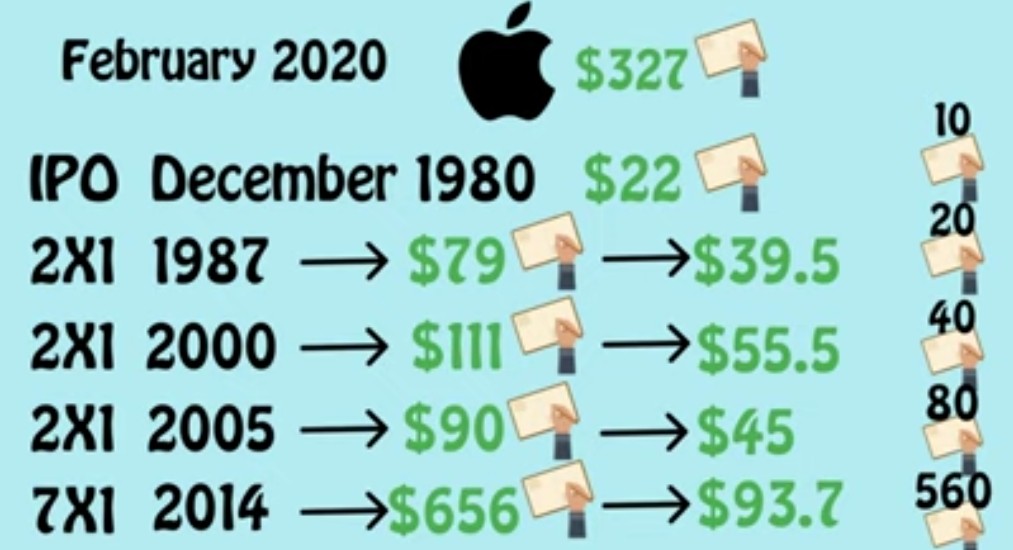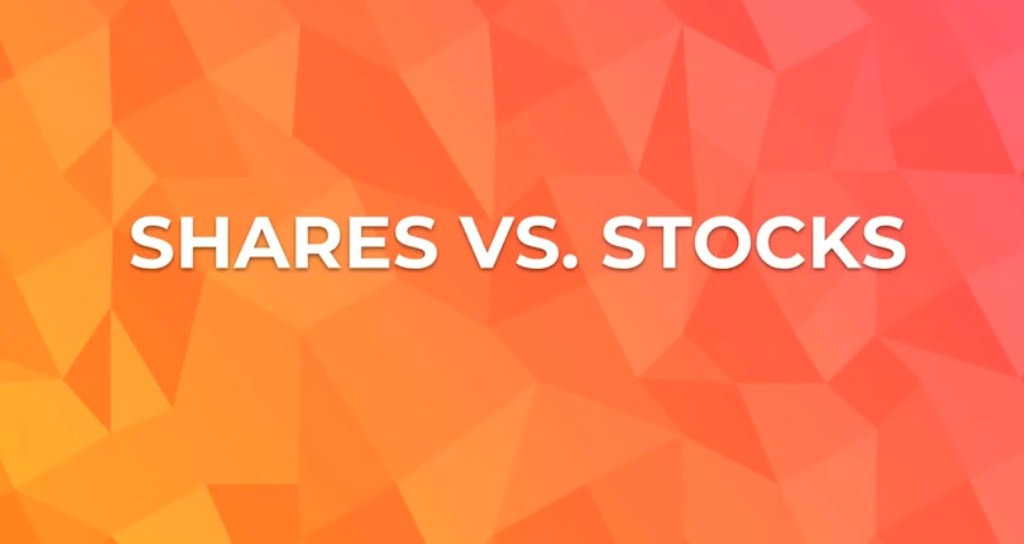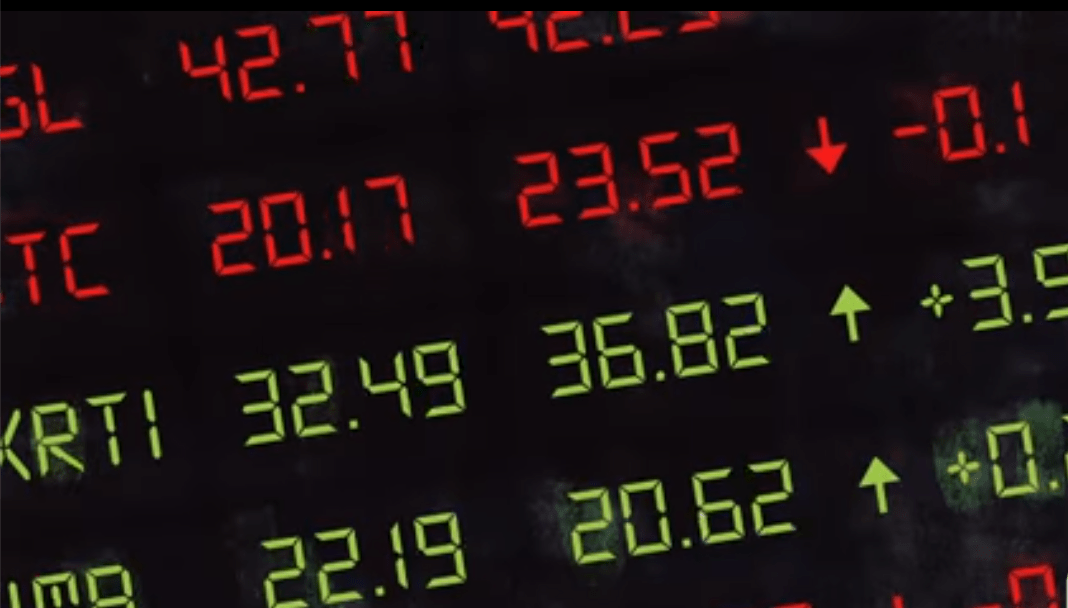What’s shares?

Shares are fractions of a company that you must own to be part of the owners of the company .
What is share and how it works?
The more of the shares of a company you own, the more part of that company you own.
You can decide to buy share of a company alone in your name or in the name of another company you own and if you intend to buy large quantity of shares in partnership with other people, you all contribute money and use the fund to buy as a collective or co-operative investment.
What are the benefits of shares?
Shares present risks and benefits. The chief risks being capital erosion, price volatility, no guarantee that dividends would be paid and some stocks are not liquid enough that buyers will buy it from you when you need to sell to take capital gain or meet urgent needs.
However, the benefits of shares include the opportunity for capital growth, dividend income, flexibility and control in terms of the price you want to sell your shares.
How do you get money from stocks?

Through dividends paid or/and when stocks prices appreciate in value and are worth more in price more than the price investor paid to buy the stock.
Sometimes, some companies give special bonus on shares and this can fetch you extra shares from the one you originally bought and can be sold as well.
What is the difference between stocks and shares?

Stocks and shares are used interchangeably when used in terms of company ownership and in stock markets.
Stocks describe a slice of ownership of companies listed on the stock exchange while the term ‘shares’ refers to the fraction of a particular company you own. For example, it is more common to state that you own the shares of ABX but you own stock of group of companies in the financial services sector.
So, in terms of their nature of quantity, as part of a whole or quantity as a whole, shares and stocks are primarily different.
When the quantity is calculated as a share of a single company , it is regarded as shares. While when you calculate the quantity for different companies, the whole quantity of the shares for the different companies is called a stock.
A company can convert its shares which are fully paid up, into stock
What is the risk of shares?
The major risk of investing in shares is capital erosion . Other risks like company wind down as a result of regulatory sanction, lack of profitability or bad business decisions that makes it go under acquisition by new owners exist but less rampant due to strong investment protection laws.
Are shares a good idea?
Yes. They are highly lucrative if you have the skill and knowledge of investing in shares or you invest in funds that are managed by skillful investment managers who render profitable rerurns to you.
If you invest independently, the chances that you will succeed depends on how you choose the shares to buy and sell wisely, they’ll build your wealth better than almost any other assets, especially if you invest for the long term after buying good growth stocks today.
Investment in shares is riskier investment than some other investments like real estate investment because of shares price volatility but that risk is compensated for by shares investment when they produce a better return than other assets.
Why do people invest in shares?
On the downside, stocks tend to be the most volatile investments but stocks investment give the highest potential returns on initial investment . This means that the value of stocks can rise sharply in the short term fetching you unbelievably high returns but the reverse can occur too in a short term or stock price fall for a protracted long period.
Stocks are equally very liquid as you can quickly convert your investment into cash unlike investments like real estate that may take awhile before you get a buyer willing to pay your preferred price for your real estate asset.
Can you get rich from stocks?
Yes, but it requires time spent understanding how to pick the stocks and having the patience to wait for the stock to appreciate in price before selling.
It is not common to find people become overnight millionaires off of a chanced lucky stock pick, so don’t count on that happening to you when you decide to invest your money in shares.
It usually takes time to grow your wealth in the stock market, so you need to have a working understanding of the stock market itself , strategy for stock pickand be comfortable with long-term investing.
Is it good time to buy stocks?

There is always opportunity in the stock market so it is fair to admit that everyday is a good time to invest in the stock market.
It may not be on the stocks every one has identified so while majority of the investors are on a particular stock, you may have come late to the party so use your skill and knowledge to spot the next opportunity before most investors see it.
How many shares of stocks should I buy?
Experts have varying recommendations on this but the popular one is 3 but not more than 15. Make sure you have done your due diligence on the choice of stock you eventually decide to buy. Usually, the ‘gain’ is made when you buy the dip and sell when high.
Is it better to invest in shares or property?
Real estate investment requires a large amount of capital to start and it can take you a long time to get returns or convert to actual cash. However, it’s considered less risky and safer investment than shares whereas you can use purchased shares to build your portfolio without more capital needed. You can even buy shares of companies in the real estate sector.
Can you lose money from shares?
Yes you can lose some or all of your initial investment especially if you made a poor choice of stocks to buy.
Worse still, even though less common, a company could go out of business and you could lose everything that you invested in it.
What is the risk of investing?
All investments have some degree of risk and it is your job to know and understand the risk in any investment you want to put your money so you can do a calculated risk.
In finance, risk is measured to the degree of uncertainty and/or potential financial loss inherent in an investment decision. Typically, as investment risks rise, investors become more careful and to mitigate risk, they demand or seek higher returns to compensate themselves for taking such risky investment.
What are The Risks of Investing in the Nigerian capital market?

Some stocks are not liquid so when you buy them and need to convert your capital gain into actual cash, you may not get buyers. For example, Capital Hotel Plc. is not a liquid stock.
There are some regulatory bottlenecks you can experience in getting your e-dividend mandate form as you may be required by registrars to get your bank to confirm your signature.
The incentive to trade by yourself without use of a stockbroker increases your chance of mistakes that will lead to loss of your money.
Some stock broking houses and registrars do not quickly respond to enquiries and emails.
The process of share transfer especially for deceased relative is still laborious.
Can you lose more than you invest in shares?
No. Especially if you had not bought your shares with margin loans payable with interest on the principal to the lender even in the event that the share price fall beyond a certain price in the loan contract or the company you bought its shares folds up,
But if you used your own funds, in the worst case scenario where the company you invested in go bankrupt and folds up , you won’t lose more money than you invested because your risk is limited to the value of the nominal value of the shares.
If you invest in one company and that company folds up and stops trading, the value of a share will only drop to zero, will not go into the negative.
That’s why you are advised not to utilise margin loans to buy shares . It raises the risk more and if you lose all the principal, you will still need to pay back the principal and the interest on the loan as you must have signed up for in the margin loan contract .
What are the best stocks to buy for beginners?
This depends on the best performing stocks at a particular period of time,based on some technical and fundamental parameters stock brokers use to evaluate stocks.
The list of best performing stock today or this week or month or year may vary from the list of best stocks at a later time.Consult your stockbroker for guidance.
Who is a stock broker?

A stockbroker is a licensed trader who buys and sells shares on behalf of clients. The stockbroker may also be known as a registered member of their professional group who is recognized by the law to practice as an investment advisor.
Most stockbrokers are chartered and work for stock brokerage houses where they handle transactions for a number of individual and institutional investors.
How long does it take to get paid from stocks?
When you buy or sell securities, the official transfer of the securities to the buyer’s account or the cash to the seller’s account is called “settlement.”
For most stock market trades, settlement happens three business days after the day the trade mandate is executed, this for short is written as T+3 days.
How much money can you make from stocks?
It depends on your goal, your initial investment and how long you are willing to wait to achieve your goal.
For most traders, on average, the goal for is to earn at least between 5x to10x of the amount you risked on a trade.
So, if you risk N50000 on each trade, you should be able to make N250000-N500000.
Are penny stocks good for beginners?
Most investors begin investing in shares by trading penny stocks.These stocks are very cheap and affordable.
In some instances, some penny stocks have returned as much as 200% gain in 5 trading days. It is this opportunity for gain and how affordable they are that makes them attractive to most beginners.
What are the types of stocks?

5 types of stocks everyone needs to own
When you decide to buy shares, you can consider the following type of shares;
1. Growth stocks
These are the shares you buy to make profit from increase in the value of the original amount you bought the shares. They are therefore regarded as shares bought for capital growth and not for the part of the profit the company shares as dividends.
Growth stocks are therefore shares of companies that generate positive cash flows and whose earnings are expected to grow at an above-average rate relative to the market over time leading to increase in the price their shares will be sold in the future.
Such companies may give poor dividends or pay no dividend at all because they are reinvesting their profits into the business.
When yoi buy growth stocks, you buy to hold and not sell in the short term but wait for it to appreciate so the value increases in worth. For the first few years you may not make much on growth stocks shares but if you hold onto them for long enough, and good the company continues to grow its cash flow along the way, you’ll be reap massive capital profit when other investors buy that same shares from you later at higher prices.
An example , in Nigeria, the company Nestle Nigeria does not pay high dividend but over the years , the value of its shares as increased so much that it is currently the most expensive stock on the Nigeria Stock Exchange.
It is very lucrative to buy, but it’s not easy to spot a growth stock.. Finding a growth stock and buying shares early is the Holy Grail of investing in shares and spotting such growth stock companies during a booming stock market(bull) is difficult but not impossible.
In depressed falling prices of stocks markets(bears), you can spot well managed companies with strong growth prospects and calculate what you’d like to pay for their shares. Then wait for when prices of the shares rise to your exit price of lucrative capital gain.
2. Dividend stocks
They are also known as Yield stocks,stocks that perform well in bull markets while providing partial downside protection for investors in bear markets. They are the stocks recommended for investor that want regular income from their investment in shares.
The stock yield is calculated by dividing the yearly dividends paid by the company to the company’s share price. For example, if a company is expected to pay out N2.50 in dividends at the end of its financial year and the share price is currently N50, the dividend yield is 5%.
It is because of dividend yield that stocks of companies like Zenith Bank Plc are bought. They pay both interim and final dividends. Their dividend payments to holders of their shares by mid or final year end is consistent and predictable. So such companies shares are highly patronized by investors who want consistent income from their shares purchase.
While of course the higher the yield, the better, savvy investors are also aware that the stability in the cash flows and the business are also important considerations when purchasing shares for income. Tax will be deducted from the gross income paid as dividend. This tax is called tax on capital gain and the value varies from country to country. For example, in Nigeria, it is called withholding tax and it is 10% of the gross income accruable as dividend paid to the investor.
So, when buying shares for income, choose dividend/yield stocks. They must have been consistent in dividend payments and enjoy stability in their core business.
3. Defensive stocks
These are the shares that don’t go down so much when prices of shares are dropping on the shares market. These are companies that typically trade in consumer staples. The shares of these types of companies hardly lose their capital gain earned in the past and they pay dividend consistently and report stable earnings regardless of the state of the state economy as a whole.
They are also regarded as non-cyclical stocks because these companies operate businesses in sectors that are not highly correlated with the economic cycle because their products are in demand even when the national economy is in recession. Such goods include food,utilities, food, oil and gas etc. You don’t give up eating and buying staple foods like rice, flour based products etc even in a recession.
Some companies that started as growth stocks are now defensive stocks. The prices of their share prices or percentage dividend hardly fluctuates .
A good example of a defensive stock is Nestle Nigeria Plc.
Defensive stocks are the recommended choice of stocks for risk-averse investors.
However, carefully consider the quantity of defensive stocks you buy, even if you are risk averse. Remember that these are companies that typically provide basic needs and so can outperform during a bust, but their significant extra performance may reverse during a boom.
4. Initial Public Offers(IPOs)
They are also known as new issues because that marks the first time that the companies make their shares available for purchase by individuals and members of the public. Some companies may offer their shares for sale to very limited number of people in what is called private placement before they proceed to fullscale IPO.
After the sale of shares to the public, the company will proceed to submit their shares by listing on the share market where holders of those shares can sell their shares especially after the price of the share has gone up. Most IPOs are sold at a discount so it is better buying an IPO than waiting until it is listed because those who buy during IPO are more likely to sell at a price that fetches them capital gain.
5.Penny Stocks
A penny stock is term used to describe stocks of small companies stock that typically trades for less than N5 per share. Although some penny stocks come with high risk, there have been some notable stocks that started as penny stocks but are doing very well in terms of capital appreciation today. A good example is Presco Oil.
Conversely, there are stocks trading well above penny stock category but are now in penny stocks category. For example, Oando Plc.
Penny stock companies that can successfully make the jump from penny stock to power stock are rare, but when you find them the reward you get in capital gain is huge. The real trick is finding the right penny stock.
Can you get rich off penny stocks?
Yes you can, but they can also make you lose a lot of money. That is why Penny stocks are considered as risky investment, but there are some ways to lower the risk and put yourself in a position for money-making penny stock trading if you can invest in the knowledge or get the services of an experienced stock broker.
What are the Strategy for Stock Picking
Depending on your investment goals, it is better to have a collection of shares in the category or categories that match your goal.
However, to spread your risk,a balanced portfolio is recommended.
This is a healthy mix of value accretive shares,IPOs, income-generating holdings, and non-cyclical defensive stocks are likely to protect your investment from being eroded while it grows your nest egg when economy is boomin and keep it well padded when times are tough and economic bursting.
How Can You Begin investing in shares
You need the services of a trusted, competent and reliable stockbroker.
You need to equally purchase and study a well written book on investing in the capital market which explains the whole process in clear practical steps.
How To Begin Investing in the Nigeria Stock Exchange.
Get in touch with a Chartered stockbroker/Dealing Clerk on the floor of the Nigeria Stock Exchange now.
Example of Chartered Stockbroker of Nigeria Stock Exchange
Omobolanle Vaughan
How To Get A Book On Investment in Shares For Free

The hardcopy of this book ” How To Create And Grow Your Wealth ” comes free to get a personal service of the author who is a Chartered Stockbroker.
Bola Vaughan is the CEO of Vaughan Capital Limited.

